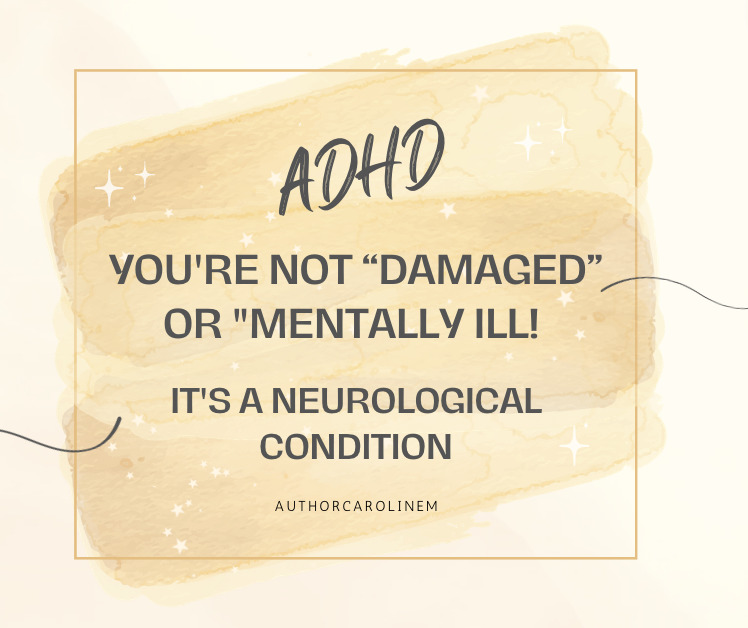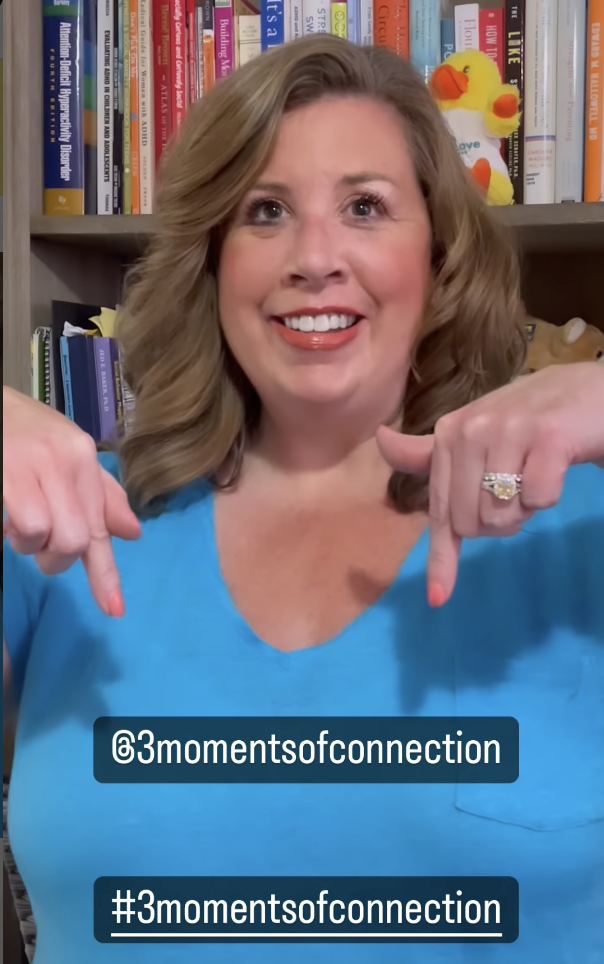15 Ways To Help Your Teen/Tween When a Friendship Suddenly Ends (Advice For Mom & Dad)

We tend to think of romantic relationships as the ones that break our hearts. But, when a friendship suddenly ends, it can hurt just as badly. This is especially true for kids and teens, many of whom have had a tough time with relationships over the past few years.
Pandemic aside, the reality is making friends is a life skill and rocky relationships contribute greatly to stress, heartache and even bouts of depression and anxiety. Teens with ADHD, anxiety or other neurodiverse components to their personalities can take the ending of a friendship particularly hard especially if the friendship was one of a few important relationships in their lives.
Teens who have few, but not many, friends can take the ending of a friendship very badly. As a parent, this is not only hard to watch, but it’s hard to know the right things to do or say to help your teenager recover.
How common is it for friendships to end?
Most parents I work with have shared stories of their kid enduring a friendship breakup. Whether the experience was actually “good” for their kid, or it was a sad fact of life, Moms and Dads are likely to experience some form of friendship loss in their child’s life. Knowing how to manage it is key to helping your child recover from this all-too-common rite of passage.
Why are friendship breakups so hard?
The answer here lies in two factors: your child’s emotional constitution and their level of resiliency. Many kids with ADHD also experience “rejection sensitivity.” This co-occurring challenge affects how people perceive rejection in all its forms.
Because people with ADHD and other neurodiverse mindsets also commonly receive negative feedback in the form of criticism for their behaviors and/or correction from parents and teachers for their social behaviors, many are also sensitive to loss. Friends can be hard to make when you’re the kid who is perceived to be “challenging”, and to have made a friend and then lost a friend is a deep wound.
The skill of resiliency isn’t always intuitive to kids. The learning curve almost always includes experiencing some form of loss and then finding your way into recovery from that loss. But make no mistake about it, the first time you endure a friendship breakup, it stings.
So what can you do? Help your teen understand why it hurts so much when friendships end
Talk to your teen and hear their hurt. It’s OK to feel devastated, angry, lost, confused or shocked at what happened. Feelings are real and truly matter when it comes to grief. There’s no timetable for “getting over it” nor is there a template that says “you’ll stop feeling bad when X happens.” We all grieve in our own way.
And, when the timing is right, normalize their feelings. They are not the first kid to experience a friendship breakup and this will not likely be the only time in their lives when they’re sad about how a relationship turned out. It makes sense to feel sad and any other grief-like feelings.
Finally, when the timing is right, look for the silver lining
Maybe the friendship wasn’t as great as they thought it was. Often toxic friends are the ones that “breakup with us” so they may one day actually be thankful for the ending. Silver-linings can be talked about too soon, so be mindful before you share that “this is for the best” with your teen. If it’s too soon, you may find yourself on the other side of a cold shoulder.
With all of this said, here are 15 ways to help your teen recover from a friendship breakup
1. Be There
Your teen will open up more if he feels understood. By holding back judgment, you become your child or teenager’s partner and create a safe harbor and judge-free zone. Remember, you are your kid’s original teacher. Being with them whatever their emotional state is all you have to do.
2. Help Your Teen Realize These Things Happen
Your teen may feel like they are the only one this happens to, but almost everyone on the planet has had a friendship suddenly end. People change, and needs change too, and sometimes a relationship ending can be a good thing. |
As it makes sense, normalize their feelings so they don’t feel like they’re “the only one” to feel so sad or angry that a friendship has ended. Loss can be expressed in many different ways including anger, sadness, fear, isolation, mental distractions and more and unless it’s harmful, all of it is normal and ok.
3. Give Your Teen Time to Grieve
There isn’t a timer on the clock to “get over it.” Grief takes time. Being cut off from someone who played an important role in their life can be crushing. Even if they don’t know the reason for the break up, they still need to grieve in order to move on. By reminding your teen that grief is the way back to happiness, they may not like feeling so down, but they may have a little more perspective around why they feel so bad for so long. As I said before, grief takes time.
4. Help Them Understand Understand Why Their Friendship Ended
For their own benefit, your teen may want to learn what went wrong. This is fine, just remind your teen that the ex-friend may not be open to discussing what went wrong. If talking to their now “ex” friend isn’t an option, offer to help your child explore what happened. If you can, commit to not judging the situation and then listen to the story. Your outside perspective may help your teen understand more clearly what happened and why.
Just remember, it’s speculation. Without the other person’s participation, the reflection and answers you can talk through are only from your point of view. If the other party doesn’t agree to talk things out, it’s best to look at this from the perspective of hindsight and not facts.
5. Remember That All Friendships Are A Two-way street. No One Is 100% To Blame
It’s easy when you’re hurt to say “it’s all my fault” and this just cannot possibly be true. It takes two to tango in every relationship. So while it’s easy to take all the blame, this often happens for two distinct reasons: you’re used to being told you’re at fault or “the bad one” and this pattern is ingrained in your thinking. Or, two, you’re struggling with your perspective on fairness and justice.
Kids with ADHD and other neurodiverse mindsets are often corrected, reprimanded, and talked to about their faults from the time they are very young. When left unchecked, kids can easily fall into the trap of “it’s all my fault” because they have developed an internal belief that they are the ones in trouble all the time.
When your teen experiences a friendship breakup, perspective is critical. It may take some time, but it’s important that they get an honest look at what “really” happened and don’t rely too deeply on other people’s stories or opinions. You can help them with this perspective by doing #6 modeling and practicing great self-care.
6. Model + Practice Great Self-care
When you love yourself, you learn how to honor your imperfections. None of us are perfect and we all make mistakes. Nurturing yourself when you’re sad and grieving is the most loving way through it. When you show your kids that you take care of your emotional needs by talking things out, feeling your feelings, and giving yourself time/space to heal, you teach them to do the same.
7. Take A Social Media Timeout
We live in a world of social media and “ghosting,” it’s often hard to know why someone is no longer engaging with you or has stopped replying to your posts. This is particularly true in the teen world. Make the strong suggestion that they take a time out from SnapChat, Insta, TikTok or whatever their social media choice de jour might be.
8. And If You Can’t Get Them Off Social Media, Help Them Manage Their Time So They Make Better Choices
Schedule events with them, buy tickets to whatever is in town, take them out to eat, to the mall or for a walk, just keep them busy. The idea here is to limit their down time so less time is spent making up stories in their head about what happened and why, and replace that time with new memories with you. You don’t need to fill every hour of the day, just be mindful of large gaps in time where they can fall down the rabbit hole of grief. Those are the times to intervene and get them doing things.
9. Try to Pull Them Out Of Their Worry Cycle
Ruminating or endless worrying is natural, but rarely helpful. Work with them on the importance of compartmentalizing; allowing 15 minutes a day to worry about the unknown or their big fears and then encourage them to stop. By putting worry on the calendar, you create an opportunity to honor their natural instincts but manage falling down the rabbit hole into obsessive thinking and making up stories in their head.
10. Help Them Learn From Their Mistakes
Who hasn’t said something hurtful at least once? In order to move forward, do your best to help them look deep inside for the reason(s) they may have contributed to a friendship suddenly ending. Ask open-ended questions like, “How do you think what you said affected what happened?” Life’s lessons rarely come easily, so help them use this experience as part of their maturity and emotional growth.
11. Help Them Connect with Others
Although they may be sad and grieving, encourage your teen to nurture and reconnect with old friends and to meet new people. Explore what is going on in their world they can get more involved with. For example, maybe they are already on the soccer team, perhaps there’s a volunteer opportunity they can participate in to meet new people? Or if they’re in a club at school, maybe there’s more they can do in that club.
Often the easiest way to get your teen doing more with other people starts with activities they already like. This is an easier way to meet like-minded people and potentially make some new friends.
12. Remind Your Teen Of Their Strengths & What Makes Them Special
Everyone has strengths and things they are good at. Spend a little time reminding your kid of what those strengths are so they feel the praise from someone they love and trust. Here, I suggest starting small and doing it in the moment, when you notice those strengths in action.
For example, if your teen is really good at including their siblings in activities, praise that by saying something like, “You know, you’re really good with your sister when she’s stressed out. Thank you for helping her.” Or, “Wow, it’s so impressive how you just did (insert action).” Point out your child’s strengths as a reinforcement that there are great things about their character and personality regardless of what other people may think or say about them.
13. Help Your Teen Look at What They Offer Friendships
This is a great time to help them make a list of their positive attributes and strengths. They may not want you to see this list, and that is just fine. Guide them to identify how they contribute – positively and negatively – to their current relationships. Which traits should they work more at, and which should they try to temper?
14. Help Them Explore How They Want to Be Treated By Future Friends
This is an important consideration because new friends will come along. Talk to your teen openly about how they want and deserve to be treated. For example, ask, “How often do you like to talk with your closest friends?” or “How do you want your friends to support you” or “How much time and in what way do you like to hang out with your friends?”
Help them look not just at how they want to “be” with their friends, but also how they want to be treated. Do they want friends who call every day, ask how they are, or invite them to do things? These values about friendship are the backbone of how lifelong friends are formed and create the template in their mind for what a mutual friendship looks like. This will help them identify frenemies or friends who are not great in the “best friend” category in the future.
15. Finally, If Your Teen Is Upset For Longer Than Seems Reasonable, Consider Coaching Or Therapy.
Sometimes what our kids need is an outside voice of support. Be open to the idea that you may be too close to your teen to be objective. Equally as important is to acknowledge that your teen may be resistant to your help. Therapy can help with the deep emotions and grief felt after a friendship breakup and coaching can help them with goals for the future.
Both can be very helpful for getting your teenager back on their feet.
Work With, Not Against, Your Teen
Every child – regardless of their age – needs at least one caring adult in their life. When a child believes that someone has their back, that they have someone to lean on and that this person will help them figure out whatever may surface, it builds lifelong resilience.
When friendships end it’s devastating. There’s no question that your teen will need time to sort through their feelings and grieve what was lost. You are an important role model in that experience and you can help your teen greatly.
The ultimate goal here is acceptance after the grief is felt. Whether your teen did “something” that caused the friendship’s demise or it was totally out of their hands, your role is to help them let go of the negativity to make room for better experiences.
And what do you do if their frenemy comes back into their life?
You have to address that as it happens but be mindful of your child’s need for re-connection and how they perceive their role in the friendship breakup. Just remember to try and have room for your child to make their own decision about their friends. Even when you see that a person in their life is toxic, it’s your role as a safe sounding board that will encourage your child to seek and ask your advice or avoid your advice altogether.
There’s nothing in the parenting playbook that says raising kids is easy. This is the hard stuff for sure. Just remember, your child will look to you for guidance and a safe space to express whatever is going on for them emotionally. By teaming up with your kid, their heartbreak and worries will fade in the healthiest way possible.
Related Reading:
How to Help a Shy Kid Make Friends
How to Help Your Teen Make Friends
Sources:
Cosslett, Rhiannon Lucy. (2018, April 21). “It Feels Like Having a Limb Cut Off”: The Pain of Friendship Breakups. The Guardian. Retrieved December 22, 2018.
Holloway, Sadie. (2016, December 5). Coping With Disappointment When a Friendship Ends. PairedLife. Retrieved December 22, 2018.
Levine, Irene S., Ph.D. (2009). Best Friends Forever: Surviving a Breakup with Your Best Friend. New York: Overlook Press.
Pryor, Liz. (2006). What Did I Do Wrong? When Women Don’t Tell Each Other the Friendship Is Over. New York: Free Press.
Thompson, Michael., PHD., O’Neil, Catherine., PH.D. (2001). Best Friends, Worst Enemies,



